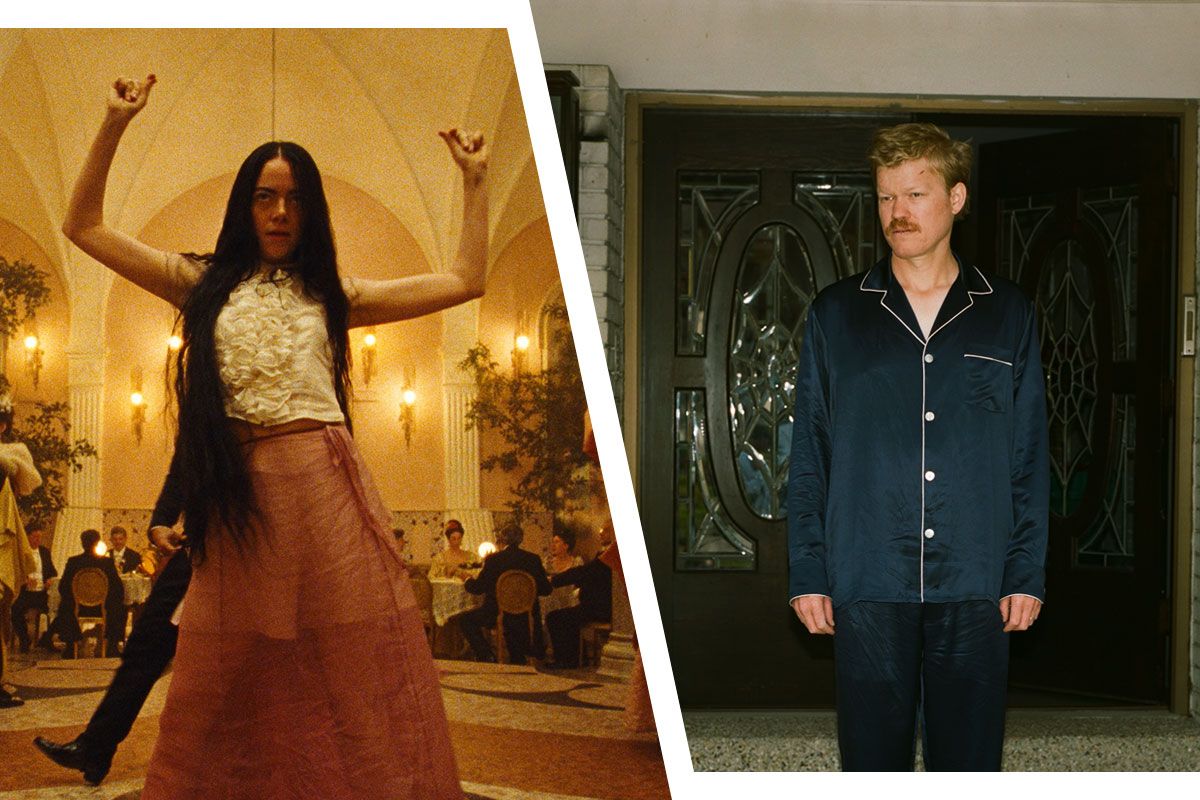If you’ve been enjoying these curated article summaries that dive into cultural, creative, and technological currents, you may find the discussions and analyses on our Substack page worthwhile as well. There, I explore themes and ideas that often intersect with the subjects covered in the articles I come across during my curation process.
While this curation simply aims to surface compelling pieces, our Substack writings delve deeper into topics that have piqued our curiosity over time. From examining the manifestation of language shaping our reality to unpacking philosophical undercurrents in society, our Substack serves as an outlet to unpack our perspectives on the notable trends and undercurrents reflected in these curated readings.
So if any of the articles here have stoked your intellectual interests, I invite you to carry that engagement over to our Substack, where we discuss related matters in more depth. Consider it an extension of the curation – a space to further engage with the fascinating ideas these pieces have surfaced.
When it comes to our membership of different social groups, most of us switch between different versions of ourselves multiple times each day. Read this passage and see if you can count how many different ‘hats’ Lisa wears in a short space of time:
It is a sunny Thursday afternoon and Lisa is finishing off a few emails at work. She glances at her phone and sees that her neighbours are planning a barbecue this afternoon. She quickly responds that she would love to join, before returning to her emails. In the background, she can hear her colleagues talking about their kids’ school projects. It reminds her that she needs to check in with her son to see how his project is coming along. To respond to the final email of the day, Lisa looks up some information on her web browser. A news pop-up informs her that the soccer team she follows has won their last match.
Does Lisa’s situation sound familiar? Do you sometimes feel like you are wearing many different hats almost all at once? (Lisa appears to be wearing at least four.) One minute you might be living out a work-related identity and the next you might switch to an identity as a parent, a soccer fan, or as a member of your neighbourhood.
Your different group memberships play a more profound role in your life than you might realise. They form a core part of who you are; researchers refer to it as your social identity. There are many different types of social identities: including those that you actively chose (eg, being a member of a political party); ones that you were born into (eg, your ethnicity); ones that are more public and formal (eg, an occupational identity); and ones that are private and less formal (eg, a social identity you share with a friendship group). To give a few more examples, you might identify as a feminist; a millennial; or as a typical dog or cat owner.
One strong driver of whichever social identity becomes most active is the environment you are in. For instance, being at your workplace as opposed to being in a sports stadium most likely activates very different social identities. But it doesn’t take a completely new environment to trigger a switch to a different dominant social identity – for instance, seeing a message from a specific group pop up on your phone could be enough. In our 2022 research, my colleagues and I showed that these social identity switches can happen relatively seamlessly.
Other social identities to fall back on could help protect her from becoming depressed
Read the rest of this article at: Psyche
There’s a story in the Talmud about a rabbi, Elazar Ben Durdaya, who loved nothing more than whoring. He’d spend every shekel he had frequenting the finest ladies on offer, and so when he heard one day that a new pro had set up shop in some distant town, he filled his purse with coins and made the long journey. (Yes, this story is in Talmud.) Money exchanged hands, clothes peeled off, and just as Elazar was having his fun, the prostitute let out a mighty fart. (Still the Talmud….)
“Know,” the gassy gal told the stunned rabbi Elazar, “that just as this wind I’d passed could never return to my flatulent behind, so, too, would you never be able to find forgiveness for your sins.”
This drove poor Elazar mad. He ran outside, naked, and began to beg for forgiveness. He asked the hills and the mountains, the sun and the moon, the stars and the constellations all to intervene on his behalf, to tell the Almighty that he wasn’t all that bad after all. The hills and the moon and the stars all refused. They had, they told Elazar, better things to do. Finally, Elazar had an epiphany. “The matter,” he told himself, “depends on nothing other than myself.” And with that, he sat by the side of the road, placed his head between his knees, and begged God to take him. A moment later, he was dead, and a voice from above informed his friends that the sinful Rabbi Elazar had gone straight to heaven.
The wisest among them, Rabbi Yehuda HaNassi, heard this and started weeping. “There is one who acquires his share in the World-to-Come only after many years of toil,” he said, “and there is one who acquires his share in the World-to-Come in one moment.” It took but one moment of clarity and introspection for Elazar to redeem himself after a lifetime of sin.
There’s much to love about this wild story, with its surreal and ribald premise, but the best thing about it, maybe, is that it doesn’t really need that last bit about divine forgiveness. It would’ve worked just as well had it ended with the naked Elazar, teary and transformed. Why? Because the story isn’t really about God at all. It’s about Man, his hilarious appetites, his lofty aspirations, and the rare and terrifying moments in which he steps up—or, in this case, sits down—for something more beautiful and true and everlasting than himself.
I thought about the story of Rabbi Elazar a lot while reading Salman Rushdie’s latest, Knife: Meditations After an Attempted Murder. The author’s experience, as that subtitle suggests, was far less piquant: He was stabbed 15 times by an assailant while giving a talk on stage in Buffalo, lost an eye, and spent more than a year recovering from his ordeal. But the account he produced, though brief, is Talmudic in its spirit. It leaves nothing out, lets nothing solid melt into metaphor, and insists that no matter how compromised we may find ourselves, the road to somewhere better is never blocked.
Which, given Rushdie’s circumstances, is a tall order. Long before he himself makes this point, movingly, in the book’s final pages, its cover gives away the plot: the letter “I” in the title is designed to appear like a gash, as if a knife had just sliced through the slim, sand-colored volume itself.
A knife attack, this gash suggests, is a powerful thing. It can do much more than merely rip into flesh or sever a nerve. Even worse, it can pin an author to the circumstances of his injury, and make him watch, helpless and enraged, as the only thing he’d ever wanted to be judged by, his work, goes unheeded and unloved.
Rushdie, of course, is no stranger to this danger: His gorgeous 1988 book, The Satanic Verses—which led the Ayatollah Khomeini, Iran’s Supreme Leader, to issue a fatwa calling for Rushdie’s assassination—was discussed by too many and read by too few, casting a shadow over an even larger talent that was forced to propel itself out of the front pages or gossip columns and back into the book section, one excellent novel at a time.
Read the rest of this article at: Tablet
It’s an overcast, temperate Saturday morning in the middle of May in the South Bronx. The Yankees, who play in a glittering $2 billion magnet that serves as the borough’s main attraction, are on a five-game winning streak, attempting to pull away with early control of the American League East, and they will be facing the White Sox in their stadium several hours from now. I’m ten minutes away from home plate, in a trailer at the intersection of Wales Avenue and East 152nd Street, boxed in by brutalist housing built by the city in the early ’60s. A car with an augmented sound system is parked on the corner with its doors open, blasting Latin trap and Polo G as a crew of early twentysomethings with neck and brow tattoos—some with thin facial hair seemingly drawn in fine tip marker, others in warm-weather sheisties—dance, slapbox, smoke weed, and drink on the curb in front of a bodega at 9 a.m.
Driving into the South Bronx—the portal connecting New York City to Westchester, Connecticut, and New Jersey—feels like traveling through the dense guts of a great beast. It’s a digestive tract composed of on-ramps and approaches to elevated superhighways, of bridges and tunnels, of roads to elsewhere at the expense of what has been cast as a way-station neighborhood, sending an unsubtle message from Robert Moses that there are more important places to be. But we are here, below the swarming network of weekend commuters, and Chef Angel Jimenez is prepping for a day of service at his one-of-a-kind restaurant slash weekly block party, La Piraña Lechonera.
Read the rest of this article at: Taste
Last year, Yorgos Lanthimos directed a dark comedy about a woman named Bella who was assembled from the body of an adult and the brain of a fetus in a Frankenstein-like surgery and who went on to fuck her way to self-actualization across a fantastical Europe. It was the most accessible thing the Athens-born director had ever made, which really says more about his overall body of work than it does about Poor Things.
Lanthimos is one of film’s reigning sadists, though he’s always funny about it — if not funny haha, then funny in a tone so arid as to render the humor borderline subliminal. He makes films set in deadpan universes that sit at Dutch angles to our own and feature characters struggling to live in accordance with arbitrary and frequently cruel conventions. All of which is true of Poor Things as well. What sets it apart is the way that Bella, the wiped-blank heroine played by Emma Stone, rejects the rules and strictures she’s told she has to abide by as she speedruns her way from child to woman of the world. Lanthimos, as unlikely as it seemed, had created a story of empowerment as well as something tailor-made to polarize the internet.
The frankness of the sexual content — which begins with Bella’s innocent explorations of her own body, progresses to her voracious pursuit of what she calls “furious jumping” with a louche lawyer played by Mark Ruffalo, and eventually brings her to work in a Parisian brothel — kicked off arguments about the degree to which Poor Things is mired in the male gaze. It seemed as though the only person who didn’t care to weigh in on the validity of the film’s feminism was the filmmaker himself, who shied away from the label like someone being introduced as a boyfriend by a person they thought they were just casually dating.
Watching the world discover Lanthimos by way of one of his least characteristic and, honestly, weakest films has been akin to watching someone you know become the internet’s latest main character, stripped of other context with their actions scrutinized via a very specific lens. Lanthimos is many things — a champion absurdist, an arguable nihilist, an occasional edgelord, and an artist who has maintained a decidedly Euro sensibility despite having worked in English with Hollywood actors since 2015. His movies have the brain-burrowing quality of an insomniac’s thought spiral and are so insistently off-kilter that the Greek Weird Wave, the movement he’s sometimes described as being a part of, feels less like
a trend in national cinema and more like a summary of how his distinct sensibility has filtered through to some of his peers. If he considers himself a feminist — and there’s no reason to believe he wouldn’t, even if there is a “please clap” quality to Bella’s journey in Poor Things that leaves it lacking in conviction — it has felt largely incidental until this point.
His work does have an awareness of the role that gender plays in the abuse
of power and in sexual violence, and his films feature their own fun-house-mirror versions of patriarchy. But when it comes to the degradations his characters are subjected to, he’s equal opportunity. The most challenging aspect of his movies, which run the gamut from the brilliant (Dogtooth, The Favourite) to the irritatingly opaque (Kinetta, The Killing of a Sacred Deer), has more to do with the impassivity of his gaze and the delectable swagger behind it. He skewers his characters like he’s pinning butterflies to corkboard, and it’s not always evident whether that’s done in service of some greater purpose or out of a more basic desire to provoke. Kinds of Kindness, his hilariously hostile follow-up to Poor Things, is a return to the director’s primary interest, which has always been control. In particular, he’s fascinated by what makes people continue to obey, how they fumblingly fit themselves into roles laid out for them, why they might submit to the will of others even when it causes them harm.
Read the rest of this article at: Vulture
In an alternate universe, I run a sprawling cabal. Its goal, according to the contrarian newsletters, crank blogs, and breathless podcasts where the fantasy plays out—is to silence right-wing populists on behalf of the deep state.
Each morning, Google Alerts arrive in my inbox detailing the adventures of a fictional character bearing my name. Last month she starred in an article about “A Global Censorship Prison Built by the Women of the CIA.” In a Substack article headlined “Media Ruled by Robust PsyOp Alliance,” later posted on Infowars, an anti-vaccine propagandist implicated my alter ego in a plot to bring about a “One World Government.” A blog post titled “When Military Rule Supplants Democracy” quoted commentators who lumped her in with the “color revolution blob”—a reference to popular revolts against Russian-backed governments—and the perpetrators of “dirty tricks” overseas. You get the idea. Somewhat flatteringly, the commentators who make up these stories portray me as highly competent; one post on X credited the imaginary me with “brainwashing all of the local elections officials” to facilitate the theft of the 2020 election from Donald Trump.
The plotlines in this cinematic universe go back to the so-called Twitter Files—internal documents released to a group of writers after Elon Musk bought the social-media platform. Some of those writers have posited the existence of a staggering “Censorship Industrial Complex,” of which I am supposedly a leader. In written testimony for a March 2023 hearing of Representative Jim Jordan’s Select Subcommittee on the Weaponization of the Federal Government, the Substack writer Michael Shellenberger claimed that my cohorts and I “censored 22 million tweets” during the 2020 election. It also insinuated that I have CIA ties that I’ve kept “hidden from public view.” The crank theory that I am some kind of secret agent caught on. X users with follower counts in the tens of thousands or even hundreds of thousands started referring to me as “CIA Renee.” The mere mention of the character’s name—as with Thanos in the Marvel Cinematic Universe and Lex Luthor in the DC Extended Universe—became enough to establish villainy.
The actual facts of my life are less dramatic: When I was in college, I participated in a CIA scholarship program for computer-science majors. I worked at the agency’s headquarters during the summers, doing entry-level tasks, and left in 2004. Over the next decade and a half, I worked in finance and tech. At some point, I dropped my undergraduate internship from my résumé, just as I dropped having been on the ballroom-dancing team. But if my CIA past was supposed to be a secret, I kept it so poorly that, when Stanford University hired me in 2019, a colleague made a spy joke as he introduced me to a roomful of people at an event livestreamed on YouTube.
Read the rest of this article at: The Atlantic





